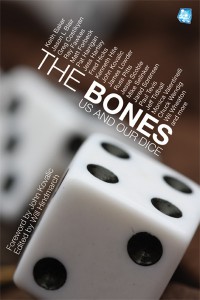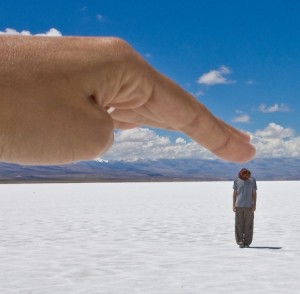Writers and marketing. In this digital age, the two words are becoming synonymous, but to what end? Having been on both sides of the fence, this is a difficult post for me to write. This isn’t the sort of thing I care to admit or highlight to people, because writers are a unique breed. Immersed in words, we use them to the best of our advantage. We research. We’re intelligent. We should be able to learn anything we set our minds to.
But not all of us can.
Our Personality Matters
By nature, our work requires us to be introverts. We turn our focus to the voices inside our head to produce the words on the page. Marketing, on the other hand, forces us to be extroverts. The two fields don’t always jive with our personalities. No matter how hard we try to hide it, we all have our quirks and sensitivities. Is that wrong? No, not at all. Our personalities aren’t something to be picked apart and analyzed, but by their nature it’s difficult to pull off both at once.
Many authors read popular marketing books from the likes of Seth Godin, etc. or learn more from their organization. (Truthfully, I’ve learned more about marketing books from my romance writer’s group than I have in any other.) Can an author understand marketing from a pragmatic and theoretical level? Yes. Can an author turn around and apply that knowledge to reach new readers?
Well, that depends.
Books are Products, Unfortunately
Once the book is done, our vocabulary changes. Instead of authors, we’re small business owners. Instead of offering a book for our readers, we have a product to sell. That concept is uncomfortable for a lot of authors (and editors) because it cheapens our art, turning it into a money-making machine. While that concept doesn’t resonate with every author the same way, the idea of “going corporate” with a book is a direct attack on the romanticized view of an author.
For many, the idea of writing commercial fiction is painful. It’s no longer your story, it’s someone else’s. Indeed, there’s a stigma for authors who have bestsellers or write tie-in novelizations. They’re sell outs. They’re not real authors. They’re hacks. The question is: Why do those stigmas exist? Is it because the writing is any better or or worse than non-commercial fiction? No, most definitely not. Many authors have written both original works and tie-in novels including E.E. Knight, Tobias Buckell, Matt Forbeck, etc. So what gives?
Emotions Blind Us
Perhaps these impressions exist because it goes back to the same reason why authors suck at marketing. We are so emotionally attached to what we do, it’s challenging to deal with the reality of it. Once a book is published, we have to sell it. Not just when it first appears, but continually. Putting the discussion of sales aside, the reality is also that not everyone will like our book, including reviewers. Even if someone is interested in it, they may not want to recommend it or buy it, either. On the flip side, readers may love it and cherish it. But the negative side to that? Can we deal with scathing or uninformed reviews? Not so easy. We created the work. We’ve given birth to a story. In many ways, we view an attack on a book as a personal one on the author. Whether or not that’s the case, this is the reason why authors investing in a career have to have a thick skin.
Marketers are our Shields
Marketers act as a buffer between the creator of a product and potential customers, much like a public relations agent protects a celebrity or politician. A marketer deals with the good, the bad and the ugly from the PR side and determines how to leverage the positive points a book has in order to reach out to new readers. Marketers are cheerleaders, cops, therapists and investors. They may have a vested interest in selling your book, but they can see it from an outsider’s viewpoint because they didn’t write it. That perspective is invaluable to any author, because it often helps you express details about your book you can’t see.
The reality of selling any item, whether it be a book or a stuffed animal, is that you can’t make everyone happy. As authors, we really love what we do, so it’s hard not to take it personally when a reader doesn’t like the stories we’ve worked so hard to tell. Part of that, of course, is the fact that it takes a lot of time to do what we do. By the time the book is published, we’re already exhausted. We’ve nurtured the story for months, from first draft to final. No one else knows that, though.
Marketing isn’t Easy
The gut reaction when a book debuts is to take the path of least resistance. Writers flock to Facebook and Twitter or blog because it’s the easiest and most comfortable thing to do. We think by blogging once or twice or getting a couple of reviews that’s what marketing is all about. We’ve done our job, right? But it’s not. Marketing campaigns don’t last a single day, often they stretch out for months at a time. Bookstores, for example, specialize in merchandising books. Take a look around the next time you’re in one or visit their website; they don’t just carry new releases.
Yet, that’s what a lot of authors do. They focus on the “one” book and promote the living hell out of it. If that doesn’t work, they repeat ourselves over and over again. BUY MY BOOK BUY MY BOOK BUY MY BOOK. Granted, it’s infinitely harder to market one product as opposed to a line of them, which is why working with a publisher or like-minded authors whenever possible is so important. The nature of the web favors the biggest, not necessarily the best. The truth is: lone voices are just a drop in the bucket online, unless you put the work in to make your voice heard. That takes a long time to do if you don’t have any help.
Sure, people point out several examples of authors who do all right, but typically an author had something prior to their success, an asset they either leveraged or forgot they had. Maybe they wrote for a popular game line and developed a fan following. Maybe they were a contributor to a well-known blog. Maybe they had been previously published through a book chain.
Whatever the reason, remember that there was an identifiable and quantifiable justification for their success. It may look easy to us, but any successful person knows there’s something to be said for hard work.
What’s an Author to do?
The more websites pop up and the more books that are sold, the more challenging it will be for new authors to market their books online without professional help or the backing of a publisher. I have strong opinions about what that means and how much it’s worth; I feel that now instead of vanity press, we have vanity marketing. Some of the prices for such services are simply absurd. If you’re considering hiring someone to provide marketing for you, be sure to do your homework. Any professional marketer will have data and examples of what a typical campaign looks like. If a service cannot provide that to your satisfaction, do not hire them.
Whether it’s short stories or tie-in work, marketing for an author is most successful when you have a built-in audience of people willing to pay for your work. Mind you, that is not the same thing as a platform. The reason why popularity online is so attractive for people, is because it’s akin to brand awareness. The thinking is, the more people who know about you, the more likely they will convert into paying customers. Larger platform? Higher conversion. Though, even then that’s not a guarantee.
Does all of this include me? Who has a background in online marketing? Let’s just put it this way. For some of my new releases? Once the work is done, I hope to partner with my publishers, to figure out how I can best help bring awareness of my works in a way that’s comfortable for both of us.


 4) She-Hulk is an iconic character. Whether you paint her as a modern day Jekyll and Hyde or as a supercharged Bionic Woman, She-Hulk is an iconic character that resonates through and through.
4) She-Hulk is an iconic character. Whether you paint her as a modern day Jekyll and Hyde or as a supercharged Bionic Woman, She-Hulk is an iconic character that resonates through and through.




 Yesterday, I was replying to
Yesterday, I was replying to  So what do you do when you feel bitterness seeping into your bones? You write more, dammit. No seriously. You drop what you’re doing and you work your ass off. You’re never going to get anywhere unless you put your fingers on your keyboard and write another story. Then you submit it. Then you work on the next one. And so on.
So what do you do when you feel bitterness seeping into your bones? You write more, dammit. No seriously. You drop what you’re doing and you work your ass off. You’re never going to get anywhere unless you put your fingers on your keyboard and write another story. Then you submit it. Then you work on the next one. And so on. 